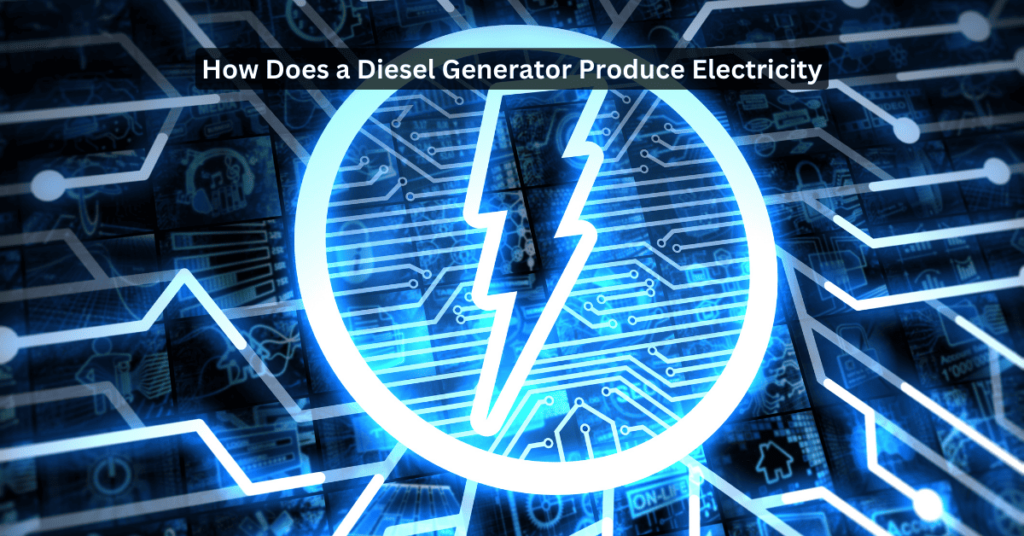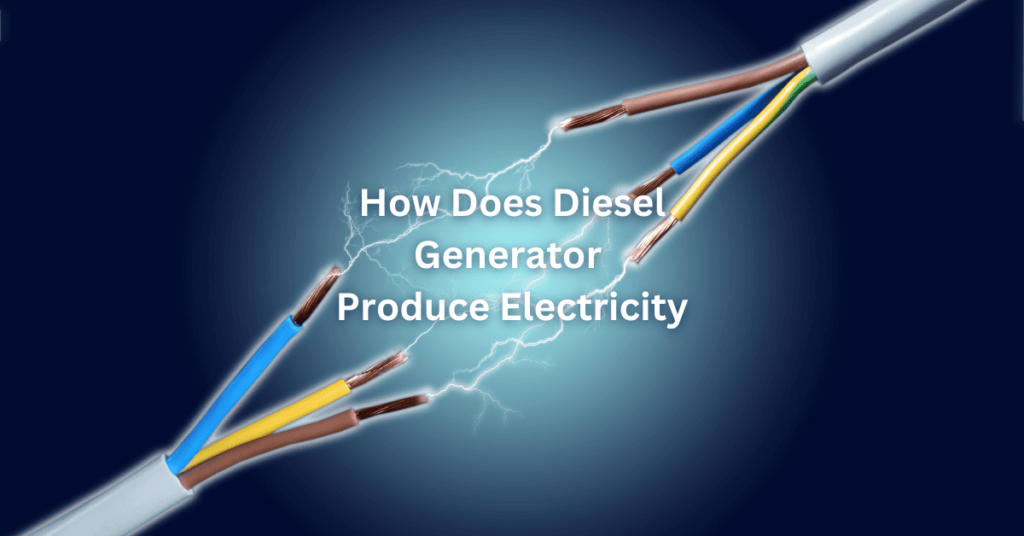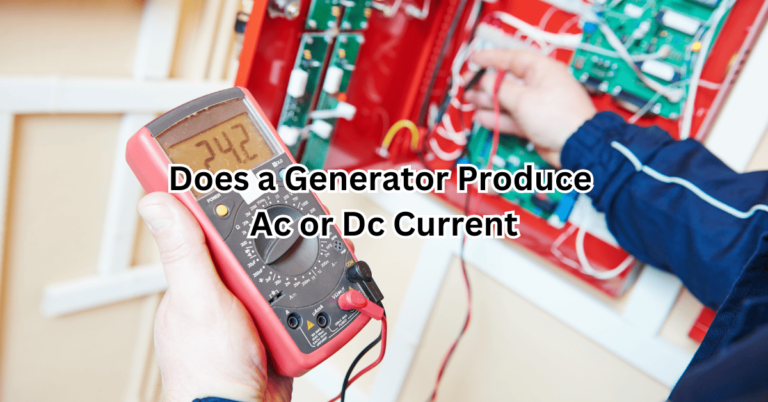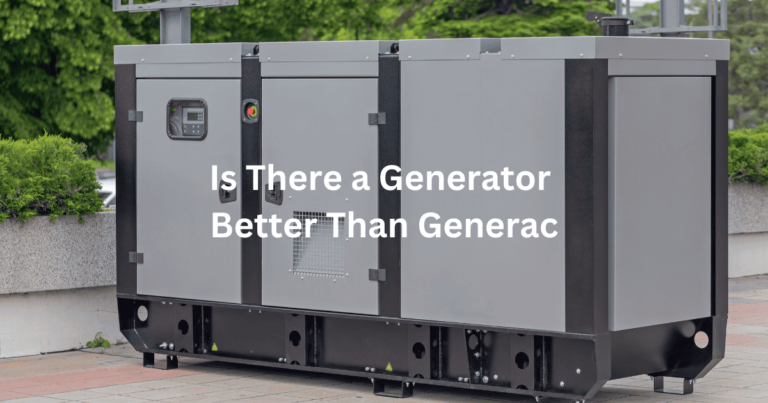A diesel generator produces electricity through a combination of a diesel engine and an electric generator (alternator).

How Does Diesel Generator Produce Electricity
Here is a step-by-step explanation about how does diesel generator produce electricity
Combustion in the Diesel Engine:
- The process begins with the diesel engine. Diesel fuel is injected into the engine's cylinders, where it mixes with compressed air.
- The air-fuel mixture is ignited through compression, a process known as spontaneous ignition.
- This combustion generates high-pressure gases, forcing the engine's pistons to move.
Mechanical Energy Generation:
- As the pistons move, they create a rotating motion of the engine's crankshaft.
- The crankshaft is connected to the generator through a coupling mechanism, transferring the mechanical energy from the engine to the generator.
Generator Operation and Electromagnetic Induction:
- The generator consists of a rotor (rotating part) and a stator (stationary part) with coils of wire.
- The rotation of the rotor within a magnetic field induces a changing magnetic flux in the stator coils.
- According to Faraday's law of electromagnetic induction, this changing magnetic flux induces an electromotive force (EMF) in the stator coils, creating an electric current.
Conversion of Mechanical Energy to Electrical Energy:
- The electric current produced in the stator coils is the result of converting the mechanical energy from the diesel engine into electrical energy.
- This electrical energy is in the form of alternating current (AC) as the generator inherently produces an alternating voltage.
Voltage Regulation and Control:
- Voltage regulators are integrated into the generator system to maintain a stable voltage output.
- These regulators monitor the electrical output and adjust the field current in the generator to ensure that the voltage remains within the desired range.
Cooling and Lubrication Systems:
- Diesel engines generate heat during operation, and efficient cooling systems, such as radiators and coolant systems, prevent overheating.
- Lubrication systems are also employed to reduce friction between moving parts, ensuring smooth operation and longevity of the generator.
Applications of Diesel Generators:
- Diesel generators are utilized across various sectors for different applications, including residential, commercial, industrial, and as emergency backup systems.
- Their portability and reliability make them suitable for providing a quick and independent power source in diverse scenarios.
Conclusion
A diesel generator produces electricity by converting the chemical energy in diesel fuel into mechanical energy through combustion in the engine. The mechanical energy is then transferred to the electric generator, where it undergoes electromagnetic induction to generate electrical energy, which is subsequently regulated and utilized for various purposes.

How exactly does a diesel generator produce electricity?
A diesel generator produces electricity through a multi-step process. The diesel engine combusts diesel fuel, generating a high-pressure gas. This gas drives a piston, converting chemical energy into mechanical energy. The mechanical energy is then transferred to the alternator, where electromagnetic induction occurs. The rotating magnetic field induces a current in the stator windings, resulting in the production of electrical energy.
What makes diesel generators efficient in electricity production?
Diesel generators are efficient due to the higher energy density of diesel fuel. The combustion of diesel creates a powerful, high-pressure gas that drives the engine, providing a robust source of mechanical energy. This efficiency, coupled with the reliability of diesel engines, makes these generators well-suited for a variety of applications.
Can you explain the role of the alternator in electricity generation in a diesel generator?
Certainly. The alternator, or generator, is a crucial component in a diesel generator. Its primary function is to convert the mechanical energy from the engine into electrical energy. This conversion is achieved through electromagnetic induction, where the rotation of a magnetic field induces a current in the stator windings, resulting in the production of alternating current (AC) electricity.
How do diesel generators ensure a consistent power output?
Diesel generators maintain a stable power output through the use of a governor system. The governor regulates the engine speed, ensuring it stays within the desired range. This control mechanism plays a vital role in maintaining a consistent frequency and voltage, contributing to a stable and reliable power supply.
Are there any safety features in diesel generators to prevent issues during operation?
Yes, diesel generators incorporate various safety features. These include overcurrent protection, which guards against excessive electrical loads, and automatic shutdown systems that activate in response to issues like overloading or system failures. These mechanisms enhance the safety and reliability of diesel generators.
Can diesel generators be used for both standby and continuous power generation?
Absolutely. Diesel generators are versatile and can serve both standby and continuous power generation needs. They are commonly employed as backup power sources during grid outages and can also operate continuously for extended periods. This flexibility makes them suitable for a wide range of applications, from emergency backup to prime power generation.
What are the advantages of using diesel generators for electricity production?
Diesel generators offer several advantages, including fuel efficiency, durability, and cost-effectiveness. They are known for their reliability and ability to provide a steady power supply. Diesel fuel is readily available, making these generators suitable for diverse environments. Moreover, diesel generators typically require less maintenance compared to some alternative power sources.
Generator maintenance: click here to read our blog


